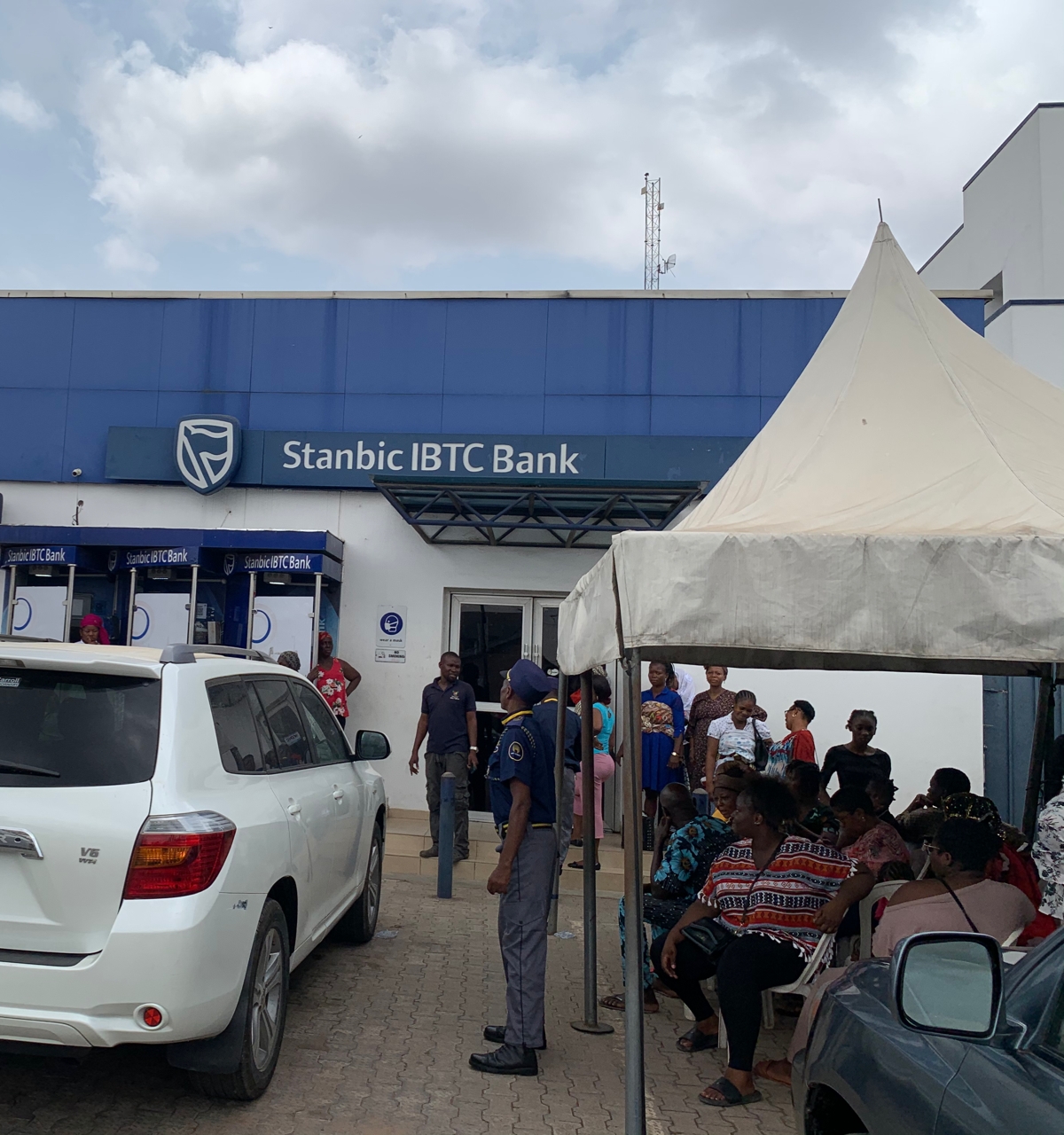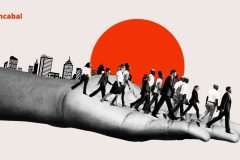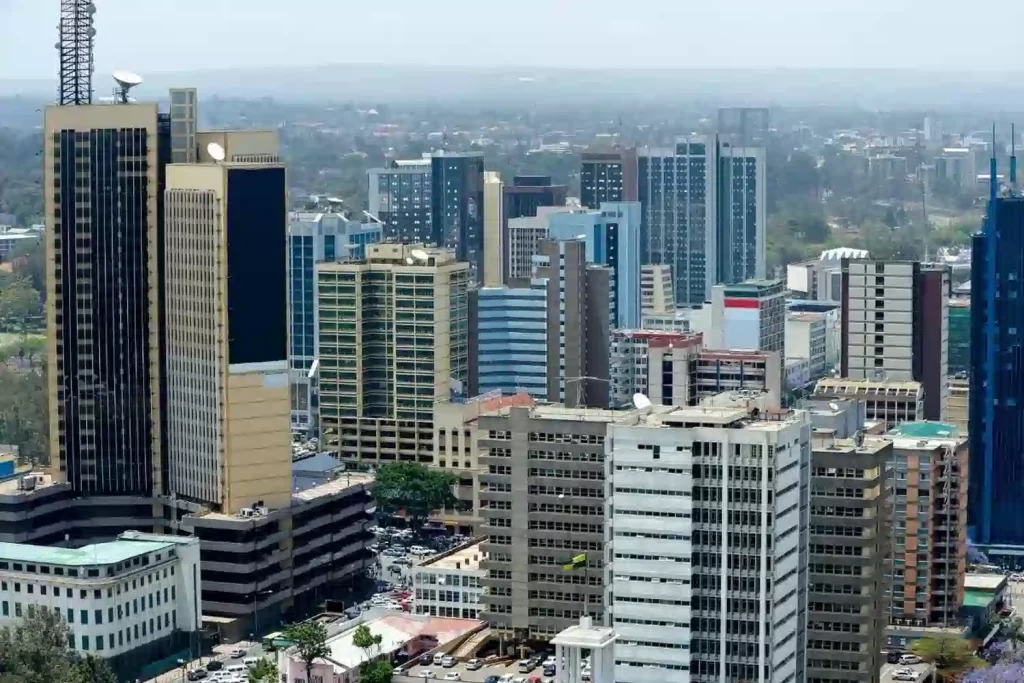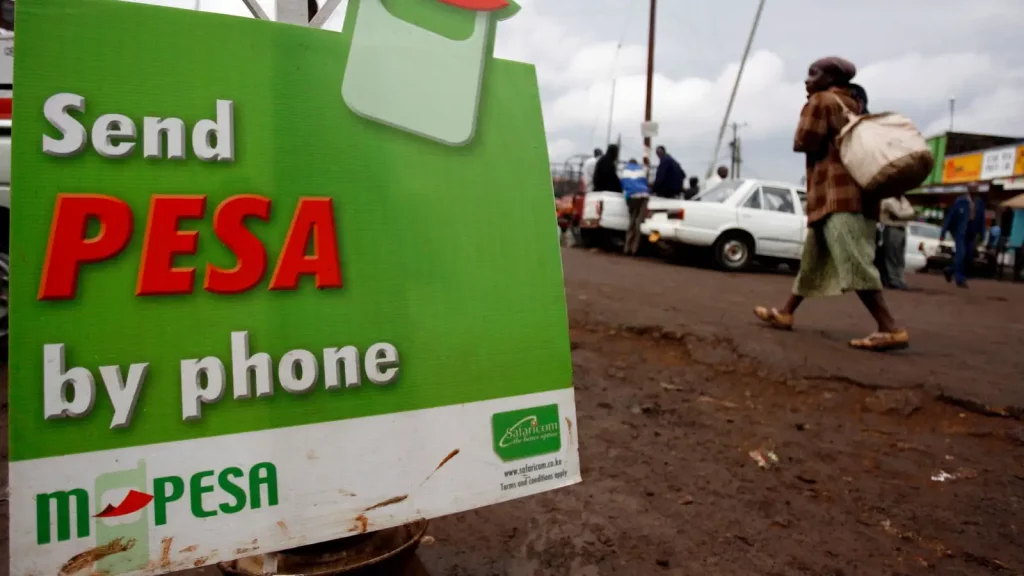Days after Nigeria’s presidential elections, Nigerians are still suffering the effects of the currency redesign as the cash crisis continues. Several bank customers have been in queues for cash for days as Nigeria’s economy contracts.
In Lagos, most banks are still feeling the effects of the currency redesign as a cash crisis that began in February continues. They are reacting to the cash shortage by limiting the amount of cash they dispense to customers or closing their doors once they run out of cash. Many Nigerians thought that the scarcity would improve following the presidential elections. This belief is tied to the theory that the currency redesign—hasty and ill-timed—seemed motivated by political purposes. The thinking was that a scarcity of cash would make vote buying difficult.
It has been five days since the presidential elections, but not much has changed. At the bank branches that TechCabal visited, large crowds of people remain outside, hoping to get in and withdraw money over the counter. At a Stanbic IBTC branch in Agege, customers waited in the sun even though there was no cash in the ATMs. One customer said it was her third consecutive day visiting the bank without getting cash. Her resilience is explained by the fact that she is a mobile money agent whose livelihood depends on having cash.
At a First Bank branch in Agege, a staff member said that there has been no cash since after the elections and that the bank has had to turn several customers away. TechCabal spoke to a customer of the bank who was waiting in front of an empty ATM, and he said that he was waiting in the hope that something might change, even though he highly doubted it.
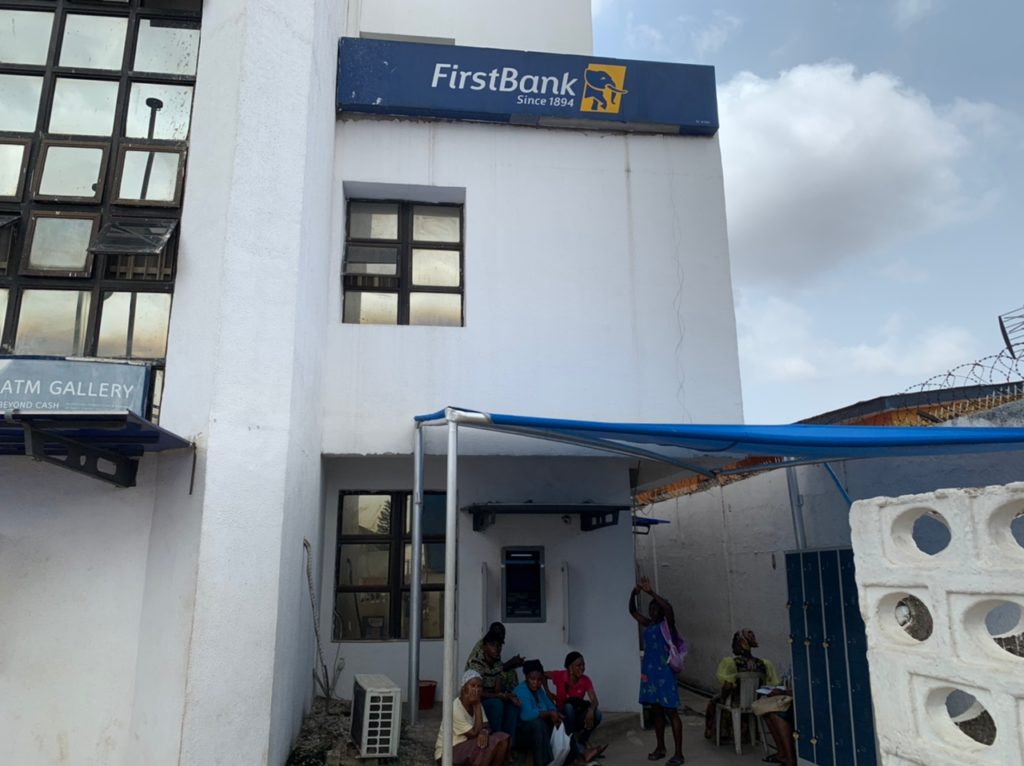
Impact of the redesign
This week, Bloomberg reported that the cash crisis has shrunk Nigeria’s economy to pandemic levels, ending 31 months of growth. S&P Global, a financial institution, said in a statement, “The most severe impacts of cash shortages were seen with regards to output and new orders, which both fell substantially as customers were often unable to secure the funds to commit to spending.”
Despite the obvious effects of the currency redesign, there’s no indication that the Central Bank plans to backpedal. In February, President Muhammadu Buhari, in an attempt to ease the pressure on citizens and banks, directed the CBN to release the old N200 notes into circulation. The CBN also conceded and allowed the old N500 and N1,000 notes to be exchanged even though they could no longer be considered legal tender.
This was not the only concession from the CBN, as it also moved the deadline for the submission of old notes from January 31 to February 10. If the redesign was to prevent vote buying, the events of the presidential election have shown that it was not effective. It remains to be seen if the CBN will reconsider its stance after the gubernatorial elections.
Away from politics, there were assumptions that the currency redesign would control inflation. That theory was disproved in January when inflation rose to 21.82%. It’s unlikely that there will be a slowdown in February. As the CBN continues to distract itself from its core functions with a questionable and ill-timed policy, it remains anyone’s guess on how long the cash scarcity will last.









